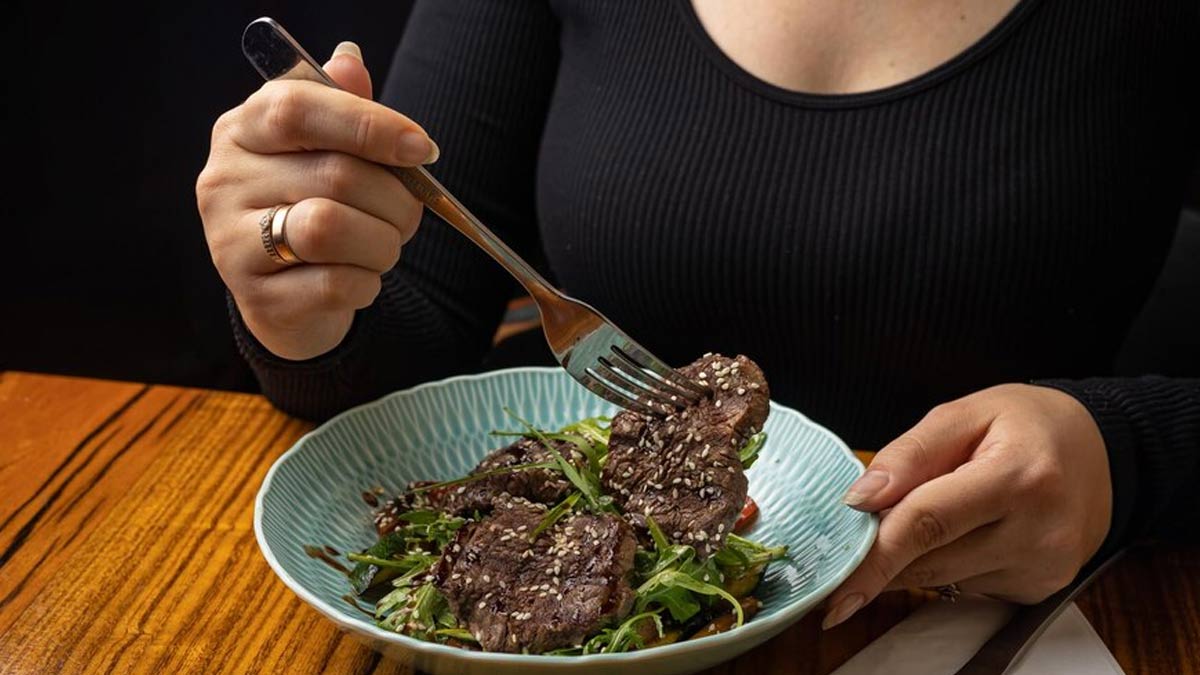
The liver, a rich source of essential nutrients like iron, protein, and Vitamin B12, is often touted as a superfood. However, experts warn that for pregnant women, it's a food best enjoyed in moderation or avoided altogether.
Table of Content:-
To know why, the Onlymyhealth team spoke to Dr Gargi Agarwal, Associate Professor, Obstetrics and Gynaecology, Amrita Hospital, Faridabad.
Eating Liver During Pregnancy
If you look at data from the United States Department of Agriculture (USDA), the liver is nutrient-dense, containing beneficial nutrients like iron, folate, and Vitamin B12. In another scenario, it can be extremely beneficial for your health. However, for pregnant women, eating liver can pose many health risks for the developing baby.
Dr Agarwal said, “Iron is crucial for preventing anaemia, and folate is vital for preventing neural tube defects. However, these benefits can be obtained from other, safer food sources.”

So, what's the reason for not calling the liver a safe food source? Dr Agarwal shares that it's because of its high Vitamin A content, which makes it risky during pregnancy.
The Centre for Disease Control and Prevention states that the daily allowance of Vitamin A for pregnant women as per the Food and Drug Administration is 8,000 IU. The USDA data shows that just 100 grams of chicken liver contains 11,100 IU of Vitamin A. The number only goes up for mutton or beef liver.
Consuming Excess Vitamin A During Pregnancy?
Vitamin A is essential for health, but in excessive amounts, it can be harmful, suggests Dr Agarwal. “The liver contains large amounts of preformed Vitamin A, or retinol, which can lead to toxicity if consumed in large quantities,” she said.
Explaining why pregnant women should avoid eating liver, Dr Agarwal said, “The high Vitamin A content in the liver is particularly concerning for pregnant women because excessive retinol can have teratogenic effects. This means it can cause malformations in the developing foetus.”
Also Read: Study Links Pregnancy Weight Gain With Increased Dangers Of Heart Disease, Diabetes: Expert Comments

When To Avoid Eating Liver During Pregnancy?
“High levels of Vitamin A have been linked to birth defects involving the central nervous system, craniofacial region, and the heart. The critical period for this risk is during the first trimester when the foetal organs are forming,” said Dr Agarwal.
Reflecting her recommendations, a study led by the Louisiana State University Health Sciences Centre recommended that pregnant women should monitor their Vitamin A intake, ensuring they get enough Vitamin A without going overboard and crossing the limit, as both these situations may trigger teratogenicity in the developing baby.
Liver Alternatives For Pregnant Women
Pregnant women can get essential nutrients from various other sources. Dr Agarwal listed:
- For iron: Lean meats, beans, lentils, spinach, and fortified cereals are excellent choices.
- For folate: Leafy green vegetables, citrus fruits, beans, and fortified grains.
- For Vitamin B12: Fish, meat, poultry, eggs, and dairy products.
“These alternatives provide the necessary nutrients without the risk associated with high Vitamin A intake,” she said.
Also Read: Benefits Of Celery During Breastfeeding, Expert Shares Celery Pudding Recipe For Lactating Mothers
What If Your Doctor Recommends Eating Liver During Pregnancy?
“There might be specific circumstances under which consuming liver in moderation could be deemed safe, but this should only be done under strict medical guidance,” said Dr Agarwal.
She continued, “Suppose a healthcare provider advises a small amount of liver for its nutritional benefits. In that case, it should be consumed infrequently and in limited quantities to avoid the risk of Vitamin A toxicity.”
Dr Agarwal concluded that while the liver is nutritionally rich, its high Vitamin A content makes it a potentially risky food during pregnancy. Pregnant women should seek alternative nutrient sources and consult their healthcare provider for personalised advice.
Also watch this video
How we keep this article up to date:
We work with experts and keep a close eye on the latest in health and wellness. Whenever there is a new research or helpful information, we update our articles with accurate and useful advice.
Current Version